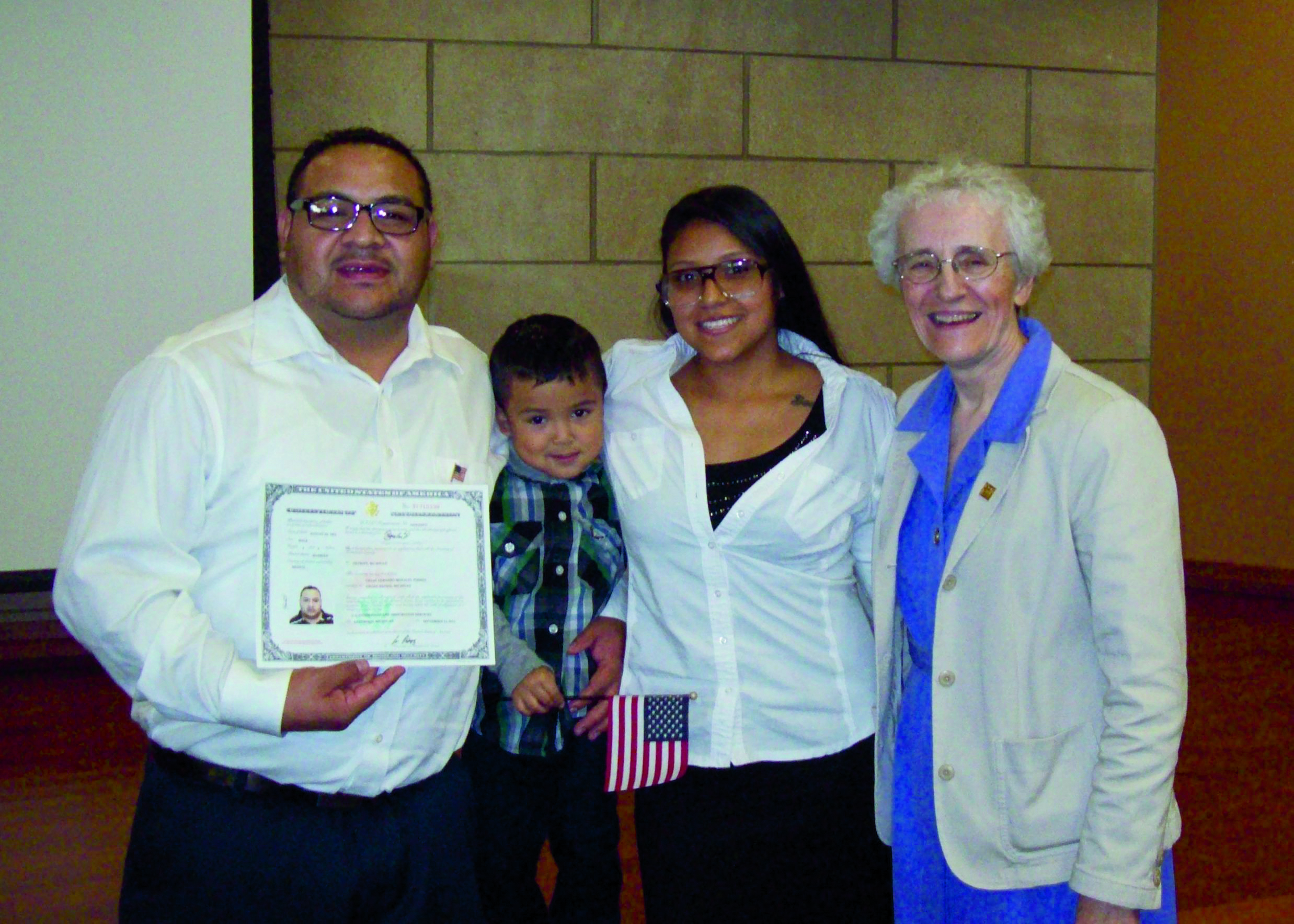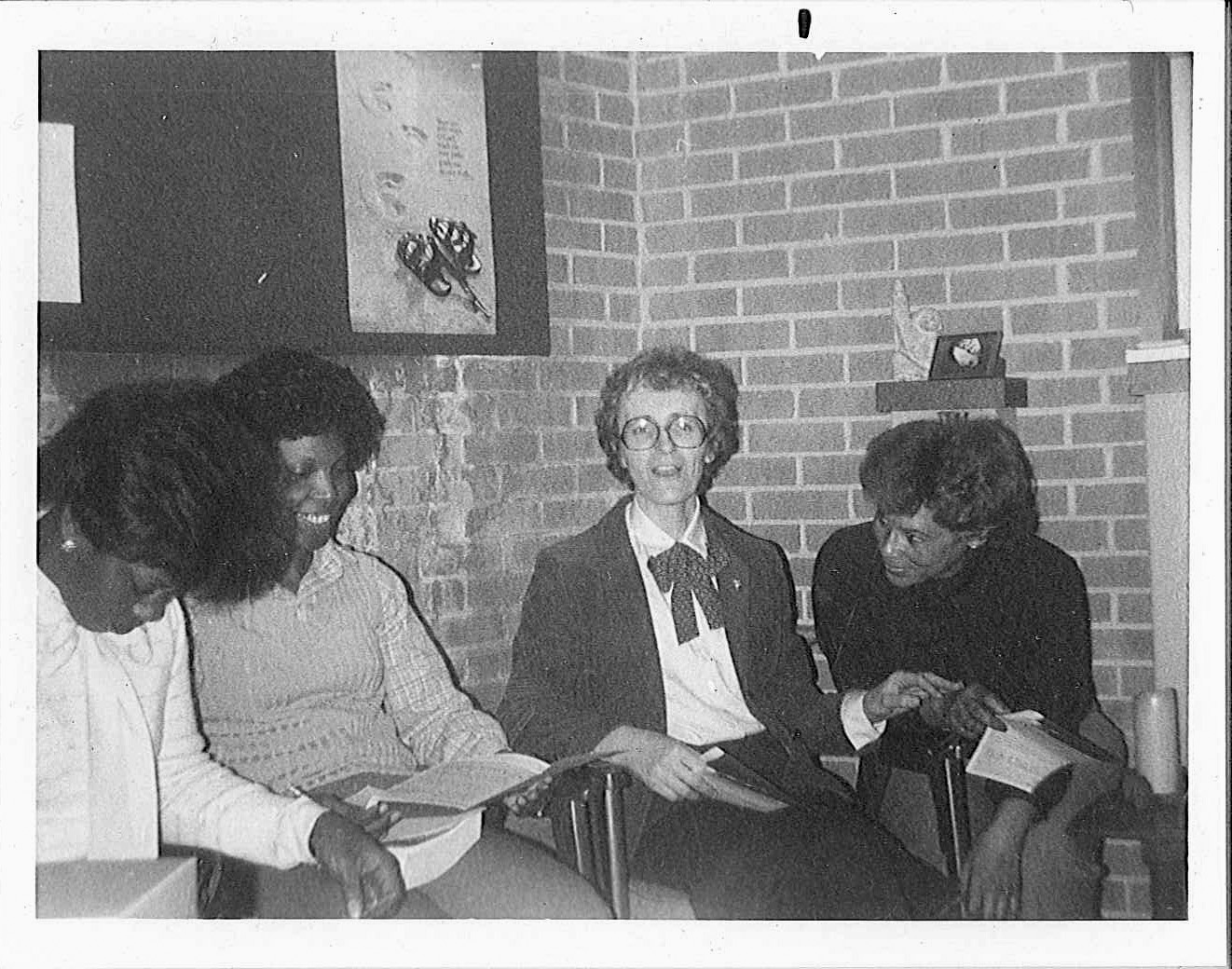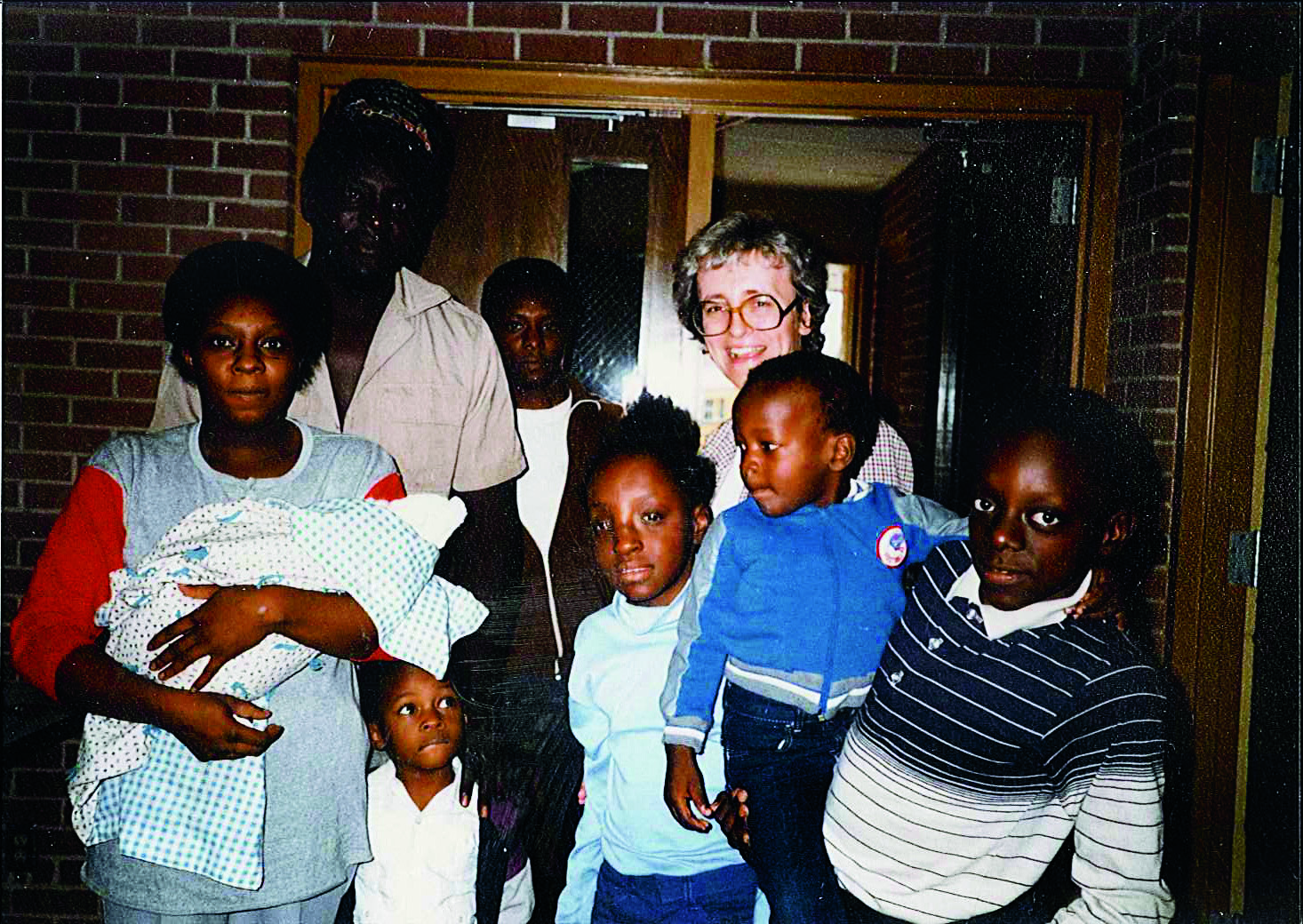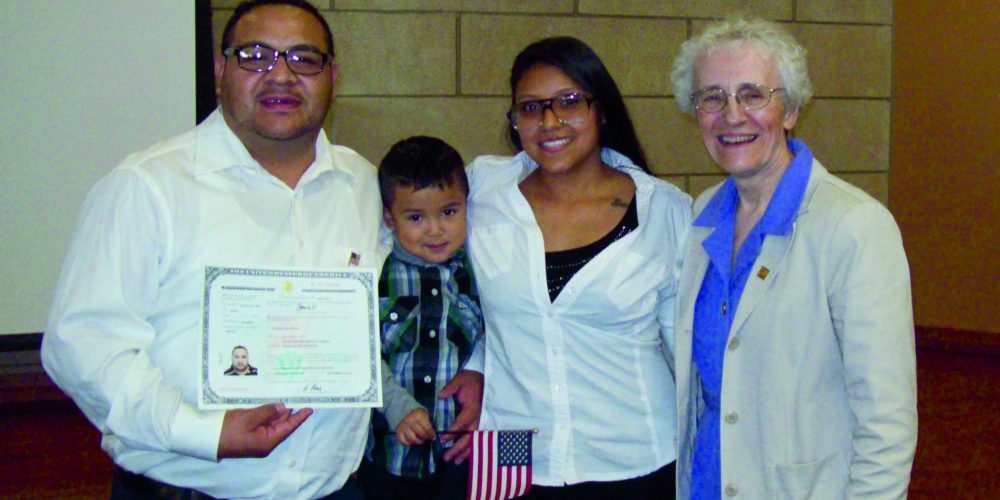
Training teachers and integrating principles of Catholic social teaching into curriculum came easily to justice-minded Dominican Sister Joyce Ann Hertzig. “I was once asked how one could integrate Catholic identity or Catholic Social Teaching into a math class. ‘Develop a story problem about the ratio of food to people in the world,’ I suggested,” says Sister Joyce Ann.
After graduating from Marywood Academy and Aquinas College, she taught in rural schools in Michigan. Then, in 1984, Sister Joyce Ann was missioned to Holy Trinity, Alabama, and then Mobile, Alabama. “I was a principal and a teacher for four years, then served 14 years in curriculum development and assessment,” explains Sister Joyce Ann.

Poverty in Rural Southern United States
She describes what it was like in these two Southern cities in the 1980s and 1990s. “I was immersed in the reality of the South. It was rural. It was integrated, yet also segregated black and white.
“In Mobile, I was living and working in what was then known as the poorest county in the United States. The impoverished lived next door to the wealthy land owners. Many homes, truly former slave shacks, had no running water; people traveled and carried water home in containers for drinking, cooking, and bathing,” shares Sister Joyce Ann. This community, in which Sister Joyce Ann was an outsider, tended to her and nurtured her love for working with people who have so many untapped gifts.
Noticing and responding to people in need was something Sister Joyce Ann continued in her role as parish social ministry coordinator for Catholic Social Services in the Archdiocese of Atlanta, Georgia, from 2003 to 2006.
“There, somebody I worked with referred to me as spider woman because she said I excelled at making connections between people, organizations… at creating collaborative environments. I welcome that imagery. My life in ministry has been about helping others see where the needs are and connecting them with those in need,” says Sister Joyce Ann
Preaching & Teaching: Standing in Solidarity with All People
There is an undying conviction among the Dominican Sisters of Grand Rapids: to support justice for all people through education and advocacy.
Daily, at Morning and Evening Prayer, Dominicans reflect on the Psalms, which express every mood of the human heart: praise and thanksgiving, petition and longing, hope and confidence, lament and complaint, confusion, and even rage. These prayers help Dominicans to praise God and to remember our solidarity with all humanity.

The Constitution of the Dominican Sisters~Grand Rapids Congregation states: We undertake with great courage, confidence and joy the work and the risks involved in bringing about the new creation of the Risen Lord. Within our means and relying on God’s help, we prepare ourselves to engage in any role necessary to promote justice, to empower the powerless and oppressed, to teach the unknowing and to sustain the efforts of all who seek to live fully human lives. Constitution and Statutes, #14
This article originally appeared in the Fall 2016 issue of Mission & Ministry Magazine, a publication of the Dominican Sisters of Grand Rapids.


